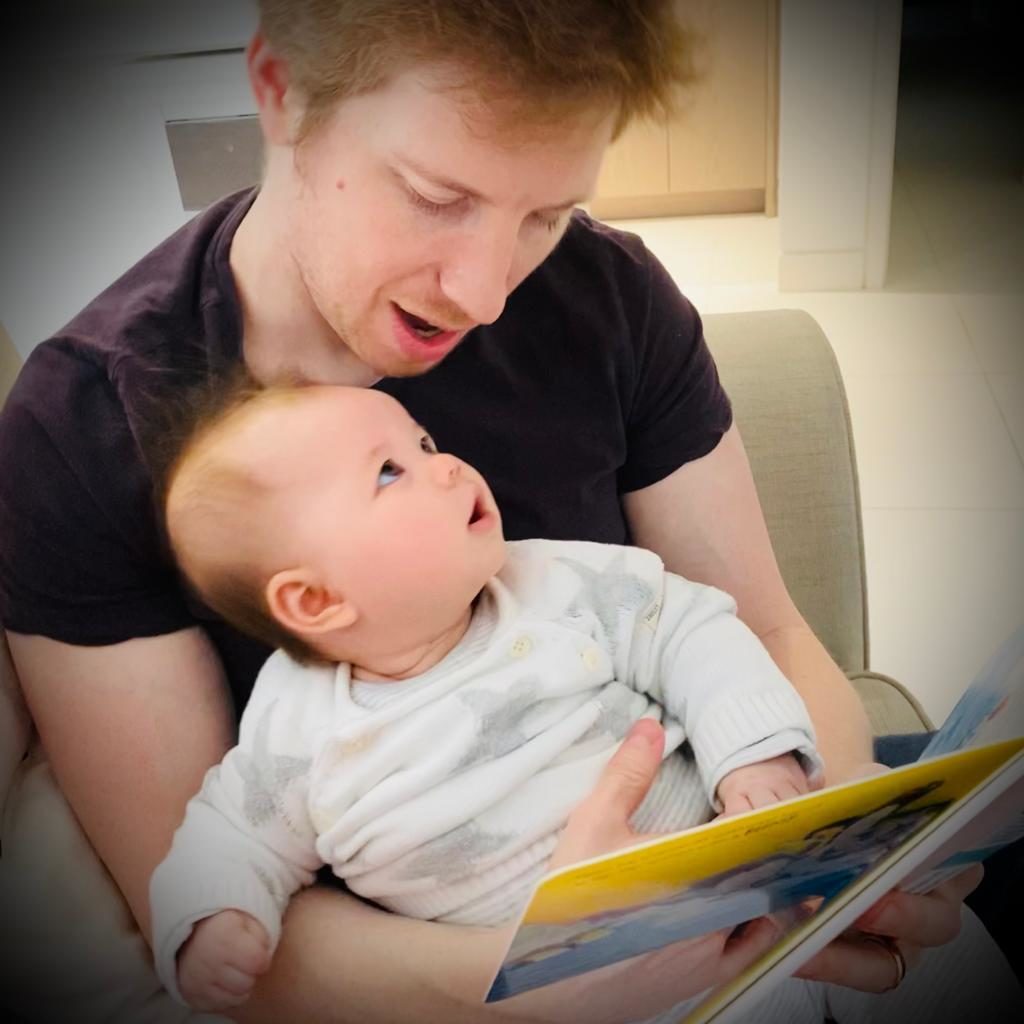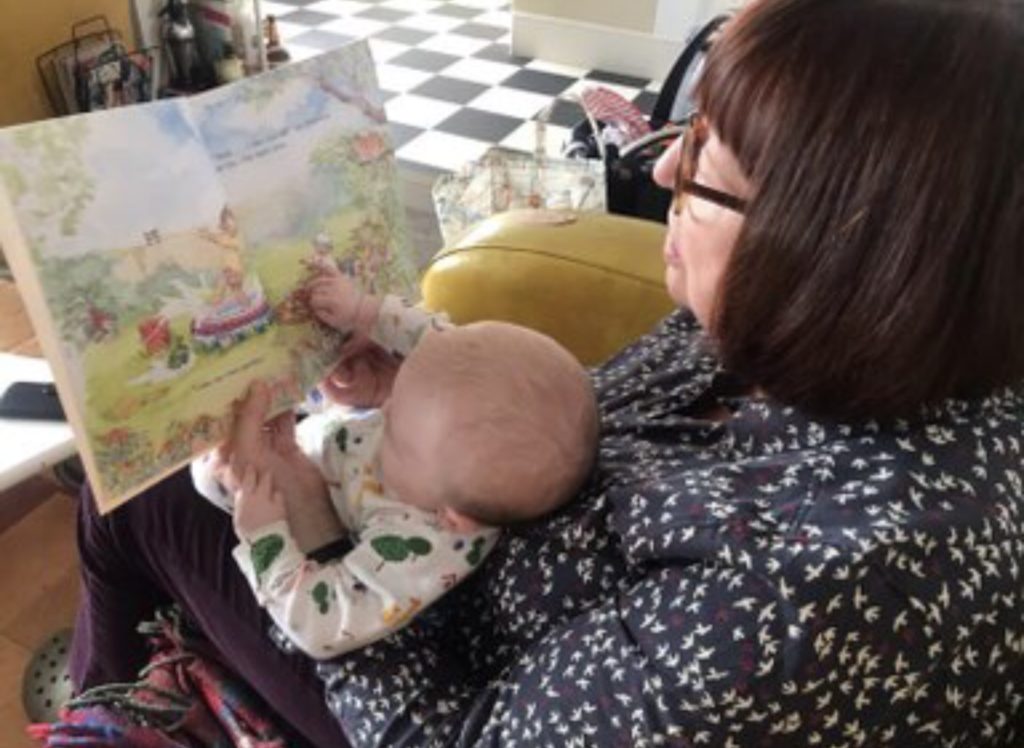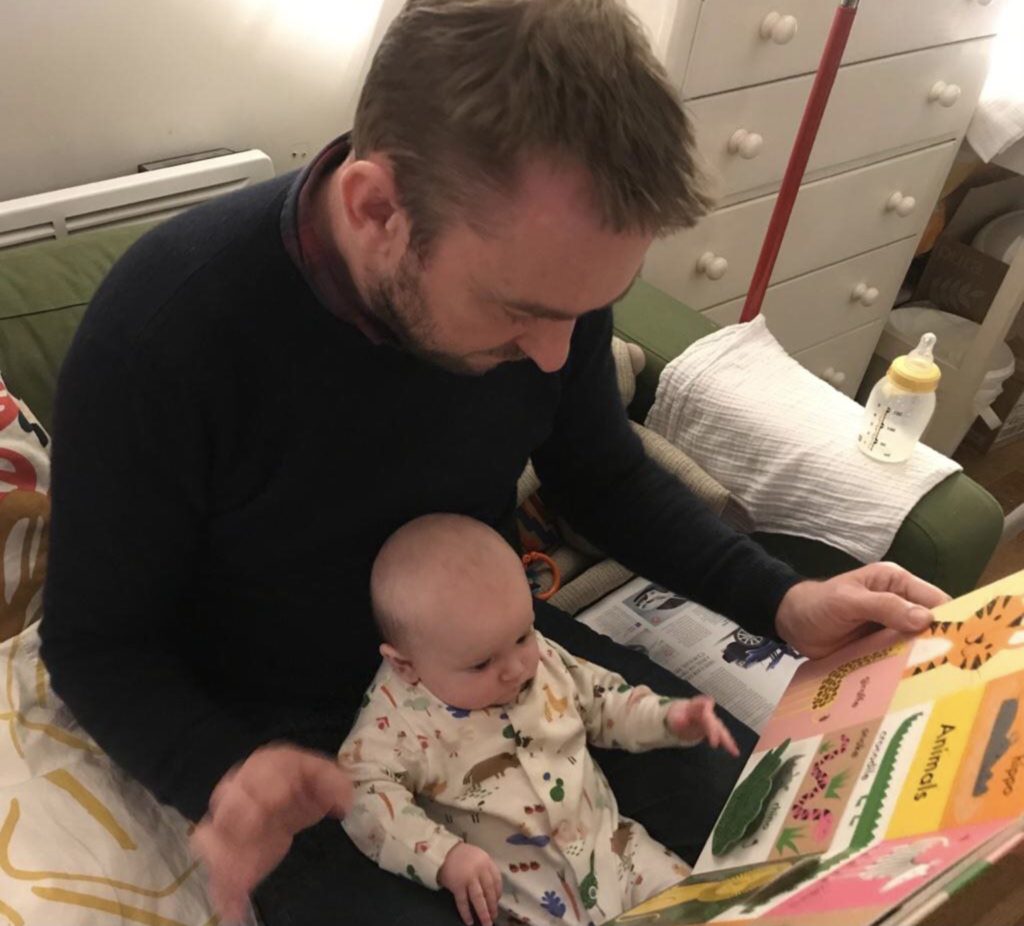Sharing books with babies and toddlers by Mary Roche
Reading aloud to babies and young children is amazingly beneficial, and if you have access to a library, it will cost nothing. Imagine you were told that you could improve your child’s thinking ability, vocabulary, oral language, literacy, interpersonal relationships, empathy, attachment, and have great fun at the same time, what would you do? I bet you would rush to sign up for such an amazing programme. Now imagine you were told that you can do it yourself and it’s free?
Listening to stories
As babies listen to a story, look at pictures and interact with the person reading, their deep brain networks are stimulated, and their cognitive development is optimised, according to Meghan Cox Gurdon (The Enchanted Hour, 2019). Because being read to is a warm and nurturing experience, empathy can be developed, and this, according to research, dramatically accelerates young children’s language acquisition and sets them on track to be ahead of their peers in school. As a former infant teacher, I can attest to this – the children who were read and spoken to, had language abilities that helped them in all kinds of developmental ways.
Being read aloud to and given the opportunity to chat about the book immerses us in words, visual images and in rhythms and cadences of speech that might not be available elsewhere. We hear new words – like enchanted and charming; ogre and dungeon; woodcutter and Gruffalo; spell and dragon.
Books
Lift the flap books provide endless fun. Little ones love looking for Spot. Over and over again – and then some more. Rhyming books are universally appealing. They introduce babies to a shared culture, and they are a wonderful form of shared connection. Picturebooks like ‘Peck Peck Peck’, ‘Hooray for Fish’ and ‘A Busy Day for Birds’, by Lucy Cousins, provide endless, interactive fun. Traditional stories can scare, reassure and provide endless sources of discussion. Is Jack a hero? Should Goldilocks be punished? Why didn’t The Little Red Hen’s friends help her?
Your library
Your local library will be invaluable. Put out the word to godparents, aunties, uncles, and grandparents that book tokens make great presents. Then take the time to read – just ten minutes a day could change your child’s life.
Dr Mary Roche is an education consultant. Passionate about the importance of dialogical pedagogy, literacy and children’s books in education, she is frequently invited to be a keynote speaker in Ireland and the UK. A former education lecturer and classroom teacher, Mary is the author of ‘Developing Children’s Critical Thinking through Picturebooks’ (Routledge 2015). A bookworm, she is at her happiest when immersed in good children’s literature.
See our top ten books for babies first bookshelf





 Follow lovemybooksUK15
Follow lovemybooksUK15